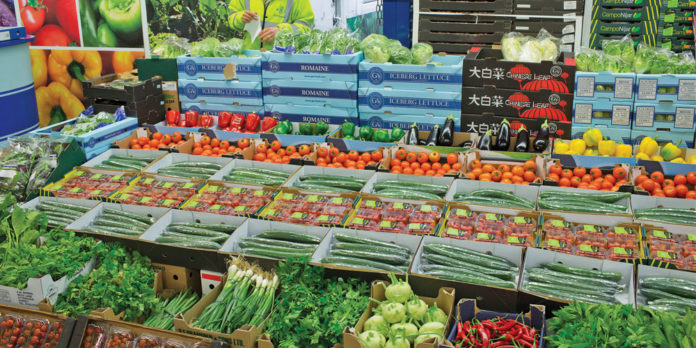Helena Drakakis looks at the government’s high-reaching plans for tackling food and packaging waste and how wholesalers are building their own sustainable strategies
The government published its long-awaited Resources and Waste Strategy in December – an ambitious blueprint to reduce waste, recycle more, and help businesses and consumers move away from a ‘take, make, use and throw’ economic model and towards a circular economy.
The strategy, now subject to consultation, sets tough targets. These include ambitions to eliminate food waste to landfill by 2030, achieve a 100% rate for reusable, recyclable or compostable plastics, and to eliminate all avoidable waste by 2050.
But what could this mean for wholesalers? According to Alistair Owen, marketing and communications director at London’s New Covent Garden Market (NCGM), if businesses want to get ahead they should engage with the aims of the strategy. “This isn’t going away. It’s certainly not a fad, and businesses don’t want to be left behind and playing catch up. It should be taken very seriously from the start and educating your staff on the ground is the first place to start,” he says.
Improve Your Business
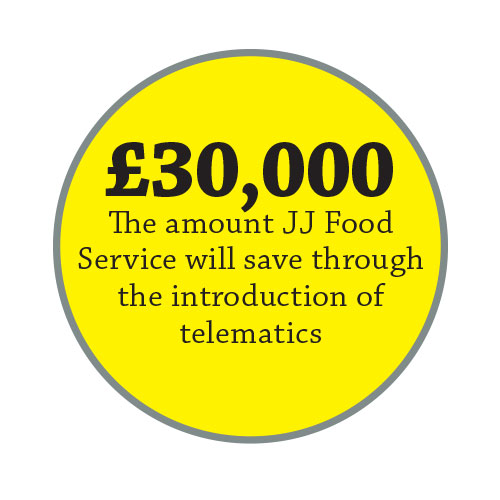 The drive to reduce, reuse and recycle is increasingly customer-led. For example, in the months following David Attenborough’s Blue Planet II series last year, raised awareness around plastics pollution all but eliminated the use of plastic straws. “Public feeling can change things, and that’s intensified due to social media. Suppliers have reacted very quickly and suddenly you can’t get a plastic straw for love nor money in wholesale. Customers are demanding it and that’s why government is doing something about it,” says Tom Gittins, business development director at buying group Confex.
The drive to reduce, reuse and recycle is increasingly customer-led. For example, in the months following David Attenborough’s Blue Planet II series last year, raised awareness around plastics pollution all but eliminated the use of plastic straws. “Public feeling can change things, and that’s intensified due to social media. Suppliers have reacted very quickly and suddenly you can’t get a plastic straw for love nor money in wholesale. Customers are demanding it and that’s why government is doing something about it,” says Tom Gittins, business development director at buying group Confex.
The group’s Green Wholesaler Awards is now in its seventh year, and last year had a record number of applicants. But, Gittins admits, while some wholesalers are passionate about the environment, others aren’t as aware of what they can do. “The message we give those wholesalers is that being green for the environment is important, but it’s also a money-saver,” he says, adding that buying groups can arm wholesalers with the tools for growth by sharing best practice.
It’s not just the public demanding businesses operate in a more eco-friendly way, but wholesalers’ customers are, too, in both the private and public sector.
“Whether it’s a restaurant or a large contract caterer, our wholesalers’ green credentials are being used to win clients and contracts,” says NCGM’s Owen, emphasising that, as of seven years ago, NCGM sends no waste to landfill. “Wholesalers’ customers look at the business and ask, ‘What are you doing to help me achieve these targets?’ A supply chain with no waste to landfill provides a compelling point of difference,” he says.
Work with Government
While wholesalers must work towards government targets, the government must consider shortfalls in infrastructure to aid a circular economy, says Confex’s Gittins. Proper analysis also needs to be given to the true value of certain policies when formulating legislation, he adds. For example, hidden costs, such as fuel, must be taken into account when planning any recycling scheme.
“Moving away from single-use plastics is a great ambition, but unless there’s 100 reprocessing plants dotted around the country to deal with the waste, you have to factor in the costs to transport it,” he says.
Another piece of the jigsaw is providing the right incentives to wholesalers to help meet government targets. Paying wholesalers to collect waste packaging while delivering goods, for example, may be an ambition the industry can pull together on.
Within that, smaller businesses need to make their voices heard as some schemes may be more appropriate for larger wholesalers. Booker, for example, offers a cooking oil recycling service with a £4 voucher for every 20 litres collected.
This is more achievable through economies of scale, but will not necessarily work for a regional business with no national network.
Giving businesses time to implement change is also important. “Asking for it from day one will only marginalise small businesses and advantage big companies. Local businesses are more involved with the local community, whereas two or three big players can hold the government to ransom if they want to,” says Gittins.
In terms of subsidies, wholesalers must also be aware of what is available for them and use these to make provision for the future. Gittins cites currently available subsidies for electric car charging points.
“Wholesalers need to think ahead. If one charging point is installed it might encourage more workers to choose an electric car. If there are government subsidies there, take them while they are available,” he says.
Read similar: The government is focused on reducing plastic packaging: what will change?
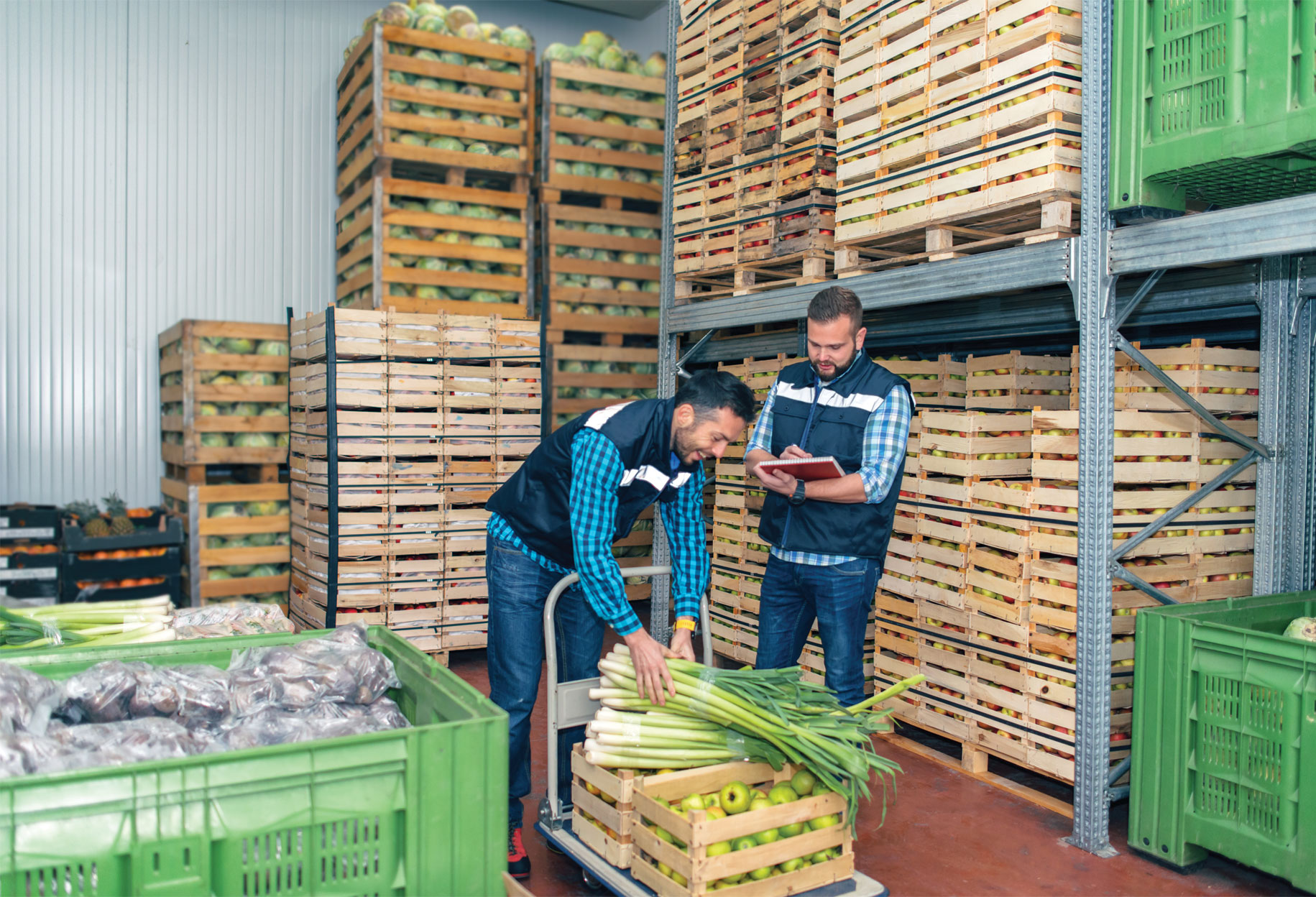
Streamline through technology
JJ Food Service is one wholesaler leading the way in becoming more efficient through the use of technology. Last year, the company achieved a dramatic reduction in carbon emissions following an investment in the use of telematics across its multi-temperature vehicle fleet.
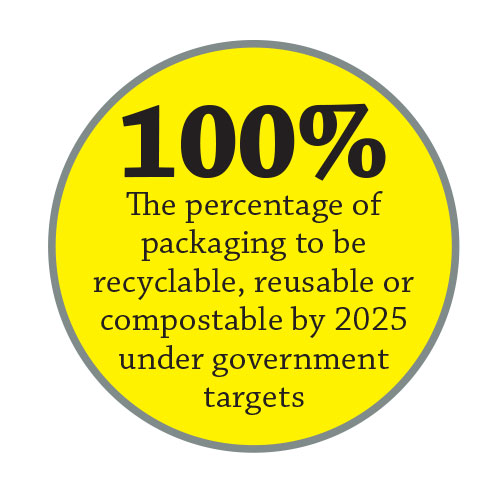 Telematics is a method of monitoring a vehicle that combines GPS with on-board diagnostics to record and map information. This includes where a vehicle is, how far it’s travelling and a profile of driver behaviour.
Telematics is a method of monitoring a vehicle that combines GPS with on-board diagnostics to record and map information. This includes where a vehicle is, how far it’s travelling and a profile of driver behaviour.
“The project began in January 2018, and by June 2018 the amount of time vehicles were left idling reduced by 55% per month while miles per gallon increased by 15% as drivers began completing deliveries more efficiently. This reduction in fuel is the equivalent of a £14,000 saving – the business is forecast to save £30,000 a year minimum through the introduction of telematics,” says Terry Larkin, group general manager at JJ Food Service.
For JJ’s customers, having access to real-time data through touchscreen tablets has helped them improve their service while also reducing their carbon footprint. “We have been able to cut down on our use of paper and limit food wastage through having frequent access to real-time data. JJ’s is the first wholesaler that’s been able to work with us in this way,” says Kevin Hobart, head of Juniper Ventures, a schools catering company based in east London.
The wholesaler has also introduced paperless technology to its warehouses with orders now received by the warehouse team on mobile devices. Elsewhere, it has used its website and mobile app to raise awareness of its new eco-friendly packaging range.
The range includes new natural, sustainable and renewable packaging lines, including compostable drink cups, straws and food waste liners, and compostable and biodegradable cutlery and packaging boxes.
“Sales are averaging more than £2,000 a week, volume sold is averaging 70 cases a week and customers are increasing weekly. Although still a ‘baby category’, it is growing quickly,” says Larkin.
Tackle Food Waste
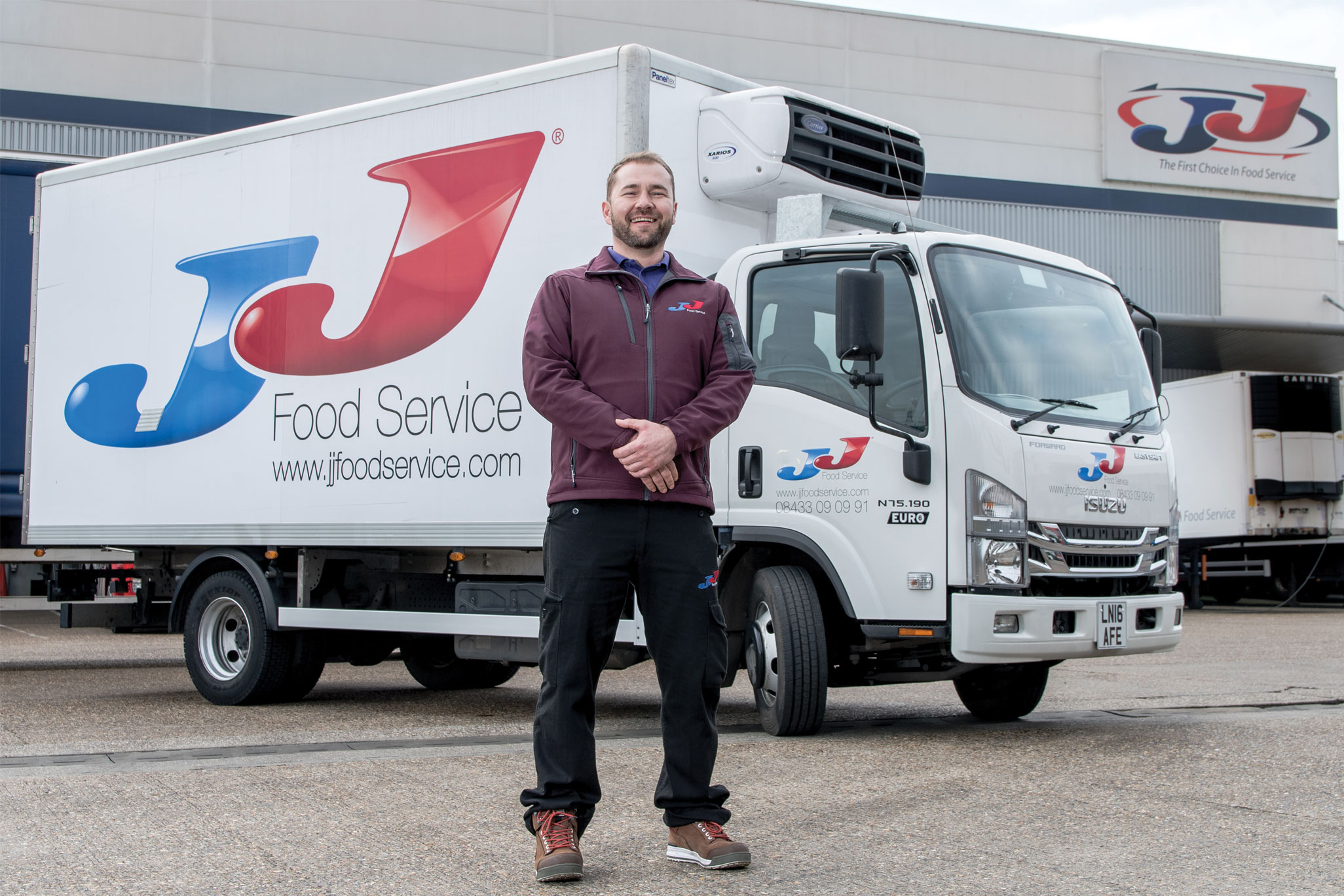
Capturing food waste is one of the key government targets with an ambition to reduce waste to landfill by 2030. However, grocery and flower wholesalers at NCGM are ahead of the game.
Although NCGM is an umbrella management organisation, each wholesaler working across the 57-acre site at Nine Elms in London is responsible for the waste it produces and penalised through a ‘pay as you throw’ scheme. Those wholesalers who don’t separate waste, such as throwing away a pallet of wrapped cucumbers as general waste instead of separating into organic and general waste, will pay a cost for disposing more,” explains Owen.
“Our pure organic waste goes for feed for pig and cattle. We work with a broker who takes our cardboard and plastics for recycling. Broken pallets become chicken bedding and wood chips or are sold, and anything that can’t be recycled or isn’t organic goes to waste for energy.”
 Looking to outside organisations is another way of tackling food waste. NCGM works with one organisation called City Harvest, which uses food that would otherwise be thrown for meals in homeless hostels and day centres.
Looking to outside organisations is another way of tackling food waste. NCGM works with one organisation called City Harvest, which uses food that would otherwise be thrown for meals in homeless hostels and day centres.
“The produce has to be fit to eat and speediness is paramount, but it’s another part of the puzzle and a way of intercepting the chain before food gets to the waste bin,” says Owen.
Kent-based wholesaler The Kentish Match Company, which has won several green wholesaler awards, was also giving food away to a local homeless charity. But when the charity refused out-of-date stock, the company found a new way of passing it on.
“We deal mainly in confectionery and do have short-dated products, so we’ve started selling to a retailer who is allowed to sell best-before goods, rather than used-by goods, as long as he has a dedicated bay in store,” explains operations co-ordinator Matthew Moare.
The company sells to the retailer in Orpington, who then sells the products to the public for a nominal amount of 20p.
Read similar: Reduce your food waste to increase profits
Increase recycling
The advice green wholesale leaders provide for those beginning their green journey is to start small.
“In practice, it can be as small as having different bins for different waste to encourage segregation,” says Owen, adding that having an understanding of the benefit to the business is paramount.
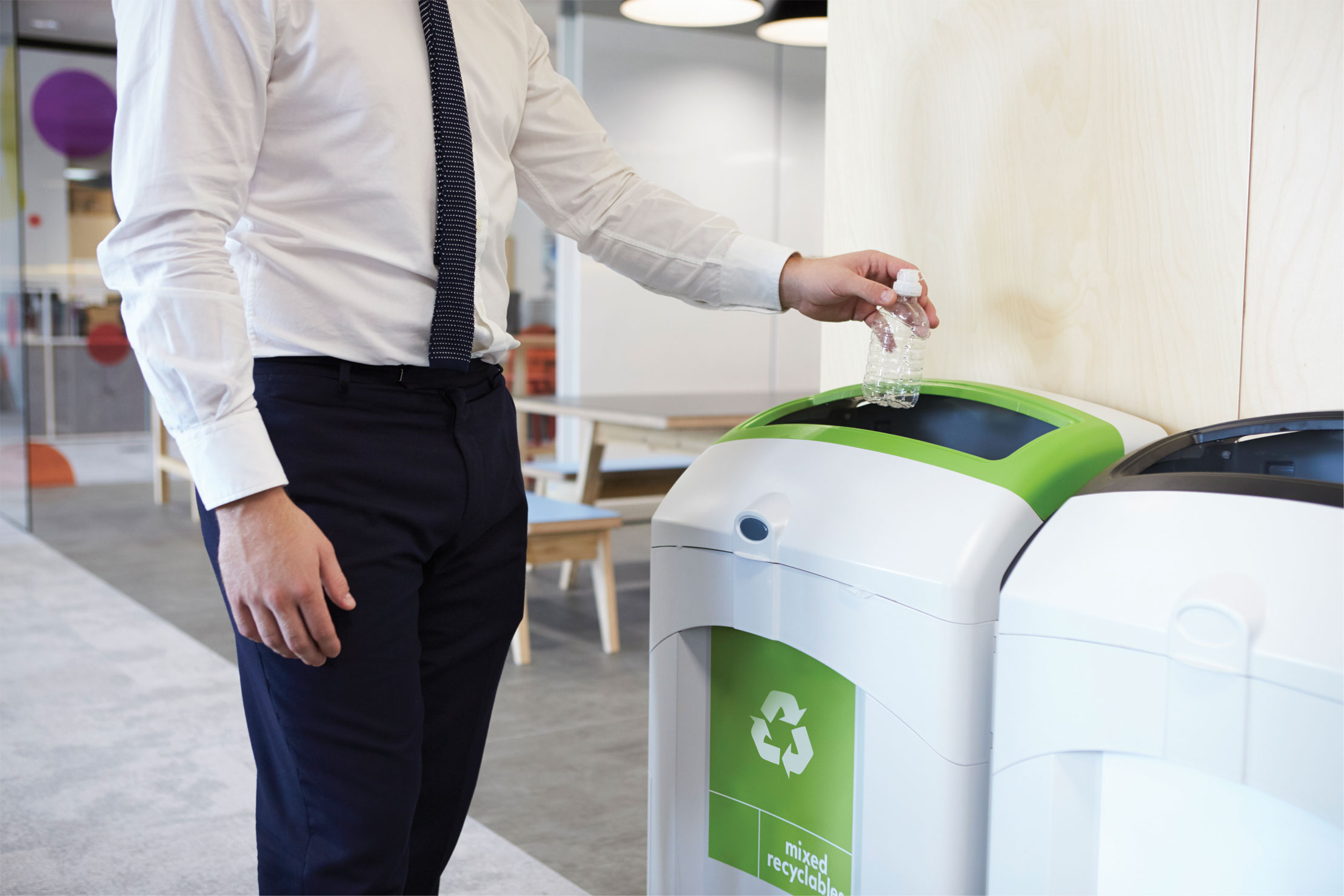
Alongside working closely with suppliers and owners, communicating targets to staff within the business is equally as important.
“It’s something that needs to be embedded in the culture of the business as early as possible because it does become quite difficult to change,” he says.
Small steps do pay off, agrees Moare. The company has taken three quarters
off its refuse bill since segregating waste and reusing items such as boxes.
“We used to put everything in the bin. Now cardboard is segregated and taken to the recycling plant as part of a trip a driver is already making. We also recycle crisp boxes collected from our customers to send out orders. Now customers save their boxes for us,” he says.
Moare has also struck up a deal with other businesses working from the same industrial estate. He stores their pallets so they don’t have to waste fuel collecting more. In exchange, they collect and send his post for him. Instead of buying and selling, they exchange time and services.
In-house, the wholesaler has installed boxes for both paper and plastic waste to encourage staff to segregate recyclables. The only item the business doesn’t reuse is the shrink wrap that arrives with pallets, as Moare hasn’t found a collector who can recycle it.
“We’ve not won awards on grand gestures,” he says. “It’s all the little things that add up. Wholesalers say to me they haven’t got time to look at the green part of their business, but all they have to do is make little tweaks.”
Read similar: The changes wholesalers can make to cut plastic consumption
